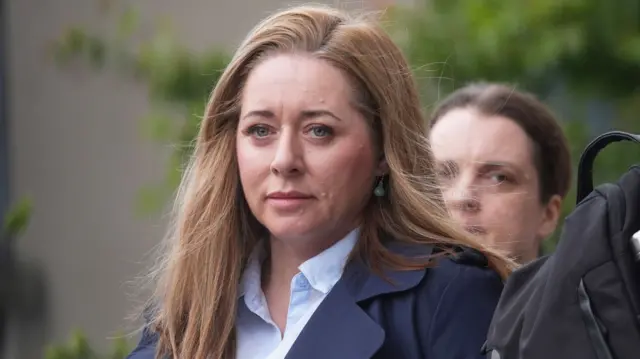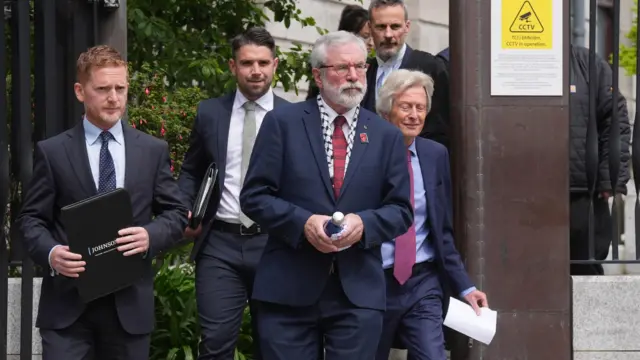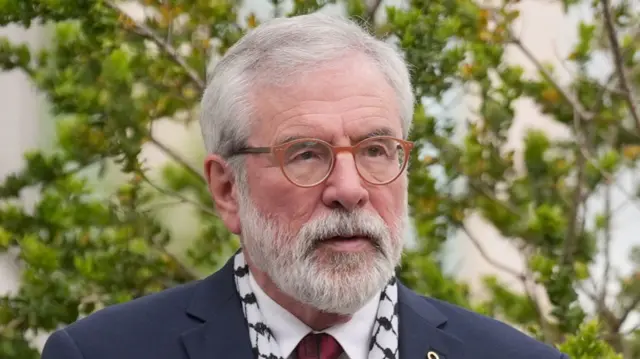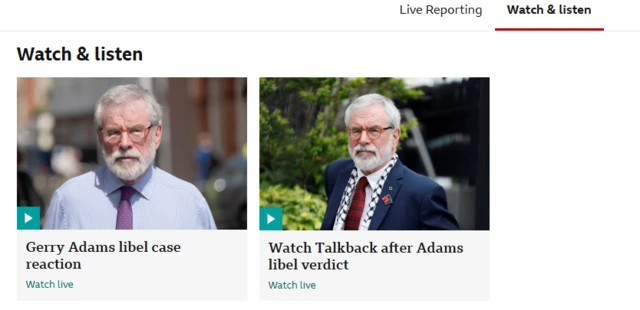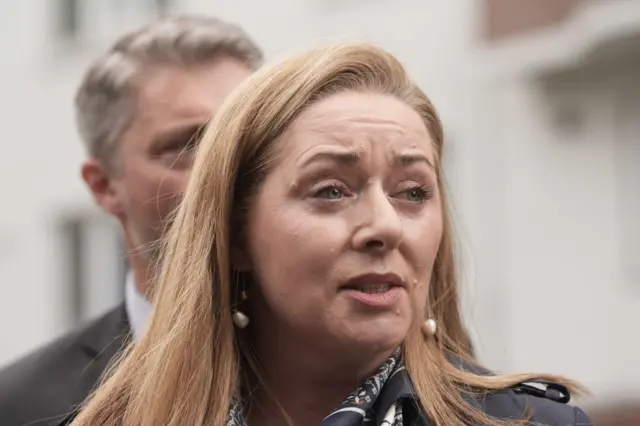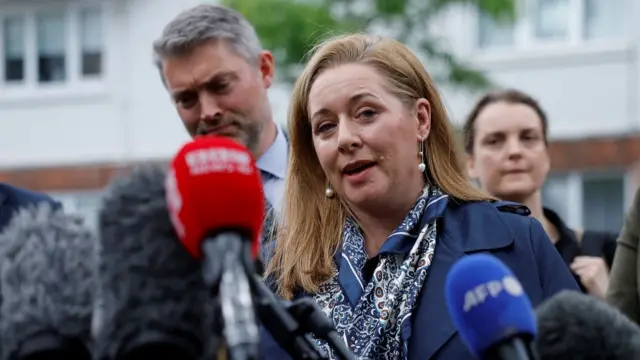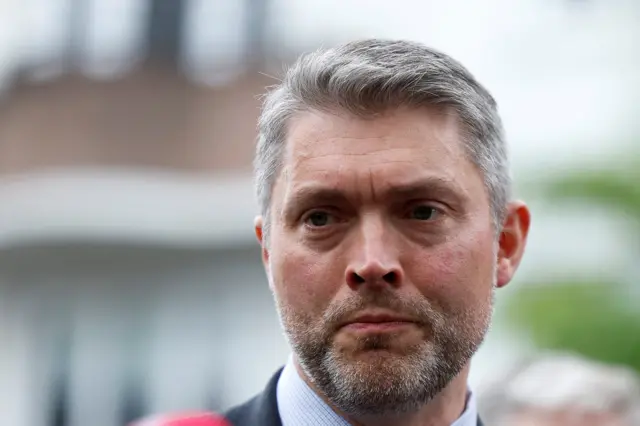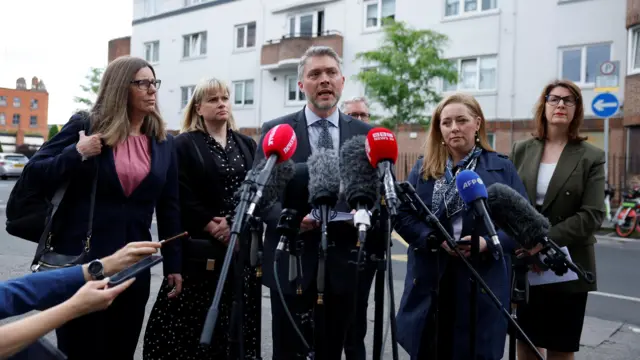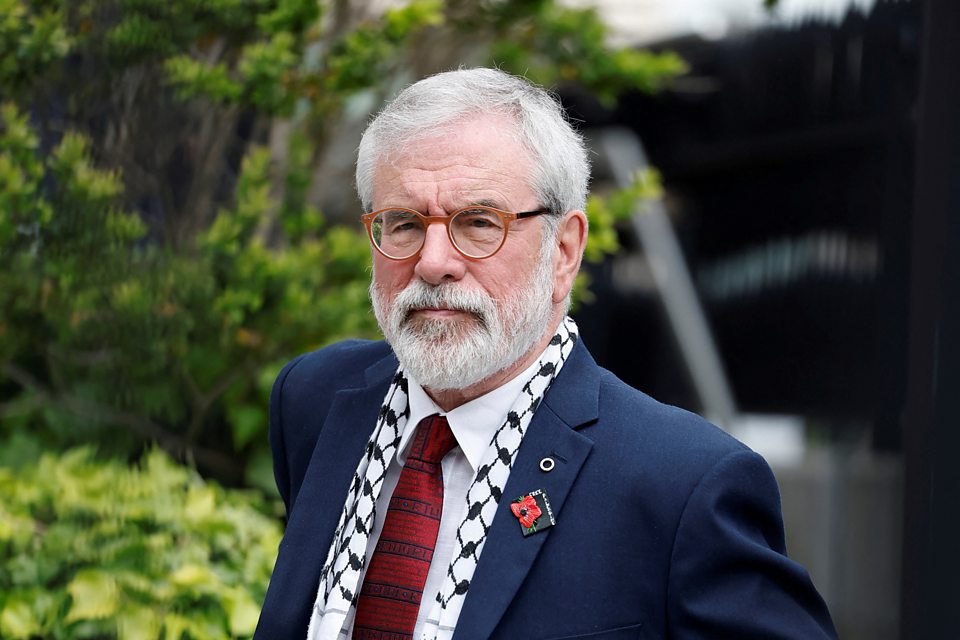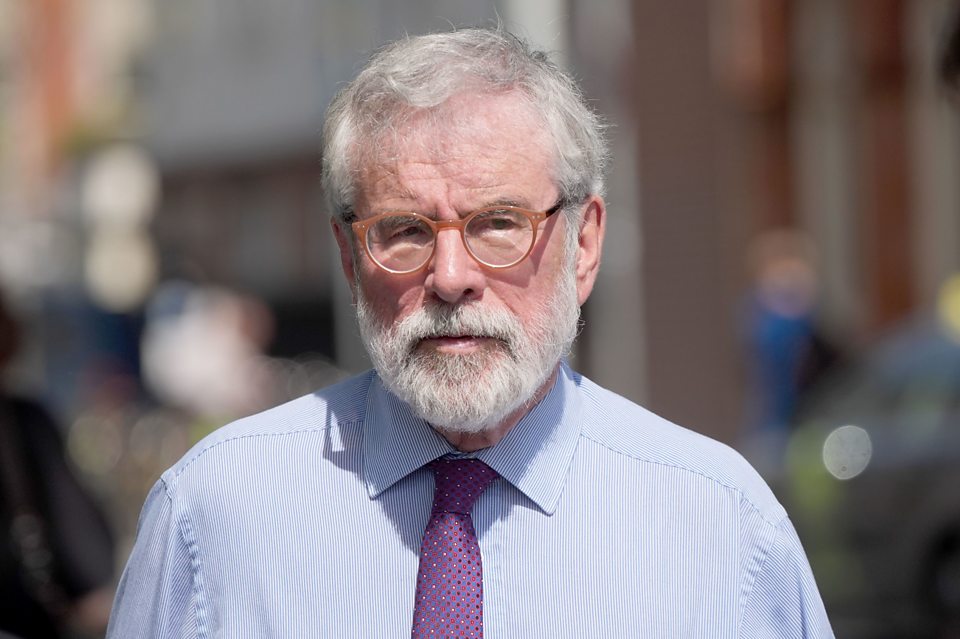Gerry Adams wins libel case against BBCpublished at 14:35 BST 30 May
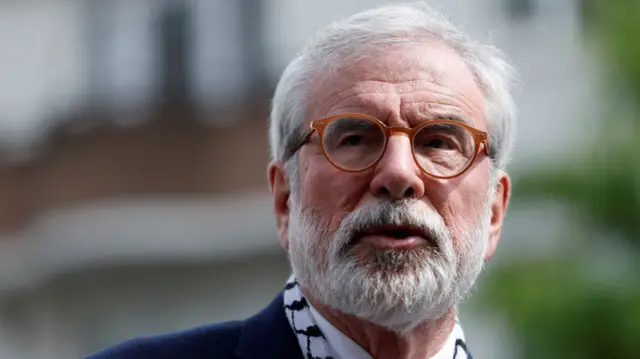 Image source, Reuters
Image source, ReutersAfter five weeks of evidence and almost seven hours of jury deliberations, the trial of Adams v BBC has ended.
Here's a recap of today's proceedings:
- Former Sinn Féin leader Gerry Adams won his libel case against the BBC and is awarded €100,000 (£84,000) in damages.
- The trial at the High Court in Dublin heard evidence from 10 witnesses, including Mr Adams and BBC NI reporter Jennifer O'Leary.
- The jury found that words used in the programme and accompanying online article meant that Mr Adams sanctioned and approved the killing of British agent Denis Donaldson.
- They also found that the BBC did not report the allegations in good faith.
- Outside court Adams claimed the BBC was "out of sync" with the Good Friday Agreement, the trial should have been dealt with a long time ago, as well as saying that he was mindful of the Donaldson family, who have had to watch all of this.
- BBC NI director Adam Smyth says the BBC is disappointed and believes it supplied extensive evidence of the careful editorial processes and journalistic diligence applied to the programme and accompanying article.
- Smyth added that the implications were "profound" and that the BBC's legal team warned the decision could "hinder freedom of expression".
We're ending our live coverage for today. You can read more on the BBC News NI page by clicking here.



